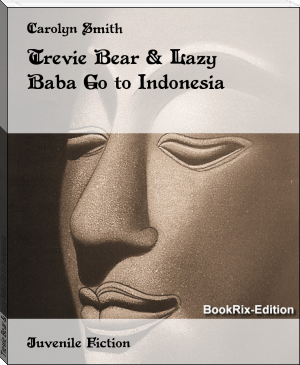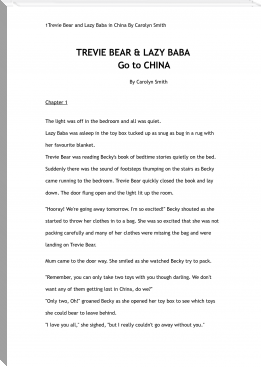At the Back of the North Wind - George MacDonald (most inspirational books of all time txt) 📗

- Author: George MacDonald
Book online «At the Back of the North Wind - George MacDonald (most inspirational books of all time txt) 📗». Author George MacDonald
nearer the better. Not all round it-I don't mean that, for a palace ought to be open to the sun and wind, and stand high and brave, with weathercocks glittering and flags flying; but on one side of every palace there must be a wood. And there was a very grand wood indeed beside the palace of the king who was going to be Daylight's father; such a grand wood, that nobody yet had ever got to the other end of it. Near the house it was kept very trim and nice, and it was free of brushwood for a long way in; but by degrees it got wild, and it grew wilder, and wilder, and wilder, until some said wild beasts at last did what they liked in it. The king and his courtiers often hunted, however, and this kept the wild beasts far away from the palace.
One glorious summer morning, when the wind and sun were out together, when the vanes were flashing and the flags frolicking against the blue sky, little Daylight made her appearance from somewhere- nobody could tell where-a beautiful baby, with such bright eyes that she might have come from the sun, only by and by she showed such lively ways that she might equally well have come out of the wind. There was great jubilation in the palace, for this was the first baby the queen had had, and there is as much happiness over a new baby in a palace as in a cottage.
But there is one disadvantage of living near a wood: you do not know quite who your neighbours may be. Everybody knew there were in it several fairies, living within a few miles of the palace, who always had had something to do with each new baby that came; for fairies live so much longer than we, that they can have business with a good many generations of human mortals. The curious houses they lived in were well known also,-one, a hollow oak; another, a birch-tree, though nobody could ever find how that fairy made a house of it; another, a hut of growing trees intertwined, and patched up with turf and moss. But there was another fairy who had lately come to the place, and nobody even knew she was a fairy except the other fairies. A wicked old thing she was, always concealing her power, and being as disagreeable as she could, in order to tempt people to give her offence, that she might have the pleasure of taking vengeance upon them. The people about thought she was a witch, and those who knew her by sight were careful to avoid offending her. She lived in a mud house, in a swampy part of the forest.
In all history we find that fairies give their remarkable gifts to prince or princess, or any child of sufficient importance in their eyes, always at the christening. Now this we can understand, because it is an ancient custom amongst human beings as well; and it is not hard to explain why wicked fairies should choose the same time to do unkind things; but it is difficult to understand how they should be able to do them, for you would fancy all wicked creatures would be powerless on such an occasion. But I never knew of any interference on the part of the wicked fairy that did not turn out a good thing in the end. What a good thing, for instance, it was that one princess should sleep for a hundred years! Was she not saved from all the plague of young men who were not worthy of her? And did she not come awake exactly at the right moment when the right prince kissed her? For my part, I cannot help wishing a good many girls would sleep till just the same fate overtook them. It would be happier for them, and more agreeable to their friends.
Of course all the known fairies were invited to the christening. But the king and queen never thought of inviting an old witch.
For the power of the fairies they have by nature; whereas a witch gets her power by wickedness. The other fairies, however, knowing the danger thus run, provided as well as they could against accidents from her quarter. But they could neither render her powerless, nor could they arrange their gifts in reference to hers beforehand, for they could not tell what those might be.
Of course the old hag was there without being asked. Not to be asked was just what she wanted, that she might have a sort of reason for doing what she wished to do. For somehow even the wickedest of creatures likes a pretext for doing the wrong thing.
Five fairies had one after the other given the child such gifts as each counted best, and the fifth had just stepped back to her place in the surrounding splendour of ladies and gentlemen, when, mumbling a laugh between her toothless gums, the wicked fairy hobbled out into the middle of the circle, and at the moment when the archbishop was handing the baby to the lady at the head of the nursery department of state affairs, addressed him thus, giving a bite or two to every word before she could part with it:
"Please your Grace, I'm very deaf: would your Grace mind repeating the princess's name?"
"With pleasure, my good woman," said the archbishop, stooping to shout in her ear: "the infant's name is little Daylight."
"And little daylight it shall be," cried the fairy, in the tone of a dry axle, "and little good shall any of her gifts do her. For I bestow upon her the gift of sleeping all day long, whether she will or not. Ha, ha! He, he! Hi, hi!"
Then out started the sixth fairy, who, of course, the others had arranged should come after the wicked one, in order to undo as much as she might.
"If she sleep all day," she said, mournfully, "she shall, at least, wake all night."
"A nice prospect for her mother and me!" thought the poor king; for they loved her far too much to give her up to nurses, especially at night, as most kings and queens do-and are sorry for it afterwards.
"You spoke before I had done," said the wicked fairy. "That's against the law. It gives me another chance."
"I beg your pardon," said the other fairies, all together.
"She did. I hadn't done laughing," said the crone. "I had only got to Hi, hi! and I had to go through Ho, ho! and Hu, hu! So I decree that if she wakes all night she shall wax and wane with its mistress, the moon. And what that may mean I hope her royal parents will live to see. Ho, ho! Hu, hu!"
But out stepped another fairy, for they had been wise enough to keep two in reserve, because every fairy knew the trick of one.
"Until," said the seventh fairy, "a prince comes who shall kiss her without knowing it."
The wicked fairy made a horrid noise like an angry cat, and hobbled away. She could not pretend that she had not finished her speech this time, for she had laughed Ho, ho! and Hu, hu!
"I don't know what that means," said the poor king to the seventh fairy.
"Don't be afraid. The meaning will come with the thing itself," said she.
The assembly broke up, miserable enough-the queen, at least, prepared for a good many sleepless nights, and the lady at the head of the nursery department anything but comfortable in the prospect before her, for of course the queen could not do it all. As for the king, he made up his mind, with what courage he could summon, to meet the demands of the case, but wondered whether he could with any propriety require the First Lord of the Treasury to take a share in the burden laid upon him.
I will not attempt to describe what they had to go through for some time. But at last the household settled into a regular system-a very irregular one in some respects. For at certain seasons the palace rang all night with bursts of laughter from little Daylight, whose heart the old fairy's curse could not reach; she was Daylight still, only a little in the wrong place, for she always dropped asleep at the first hint of dawn in the east. But her merriment was of short duration. When the moon was at the full, she was in glorious spirits, and as beautiful as it was possible for a child of her age to be. But as the moon waned, she faded, until at last she was wan and withered like the poorest, sickliest child you might come upon in the streets of a great city in the arms of a homeless mother. Then the night was quiet as the day, for the little creature lay in her gorgeous cradle night and day with hardly a motion, and indeed at last without even a moan, like one dead. At first they often thought she was dead, but at last they got used to it, and only consulted the almanac to find the moment when she would begin to revive, which, of course, was with the first appearance of the silver thread of the crescent moon. Then she would move her lips, and they would give her a little nourishment; and she would grow better and better and better, until for a few days she was splendidly well. When well, she was always merriest out in the moonlight; but even when near her worst, she seemed better when, in warm summer nights, they carried her cradle out into the light of the waning moon. Then in her sleep she would smile the faintest, most pitiful smile.
For a long time very few people ever saw her awake. As she grew older she became such a favourite, however, that about the palace there were always some who would contrive to keep awake at night, in order to be near her. But she soon began to take every chance of getting away from her nurses and enjoying her moonlight alone. And thus things went on until she was nearly seventeen years of age. Her father and mother had by that time got so used to the odd state of things that they had ceased to wonder at them. All their arrangements had reference to the state of the Princess Daylight, and it is amazing how things contrive to accommodate themselves. But how any prince was ever to find and deliver her, appeared inconceivable.
As she grew older she had grown more and more beautiful, with the sunniest hair and the loveliest eyes of heavenly blue, brilliant and profound as the sky of a June day. But so much more painful and sad was the change as her bad time came on. The more beautiful she was in the full moon, the more withered and worn did she become as the moon waned. At the time at which my story has now arrived, she looked, when the moon was small or gone, like an old woman exhausted with suffering. This was the more painful that her appearance was unnatural; for her hair and eyes did not change. Her wan face was both drawn and wrinkled, and had an eager hungry look. Her skinny hands moved as if wishing, but unable, to lay hold of something.
One glorious summer morning, when the wind and sun were out together, when the vanes were flashing and the flags frolicking against the blue sky, little Daylight made her appearance from somewhere- nobody could tell where-a beautiful baby, with such bright eyes that she might have come from the sun, only by and by she showed such lively ways that she might equally well have come out of the wind. There was great jubilation in the palace, for this was the first baby the queen had had, and there is as much happiness over a new baby in a palace as in a cottage.
But there is one disadvantage of living near a wood: you do not know quite who your neighbours may be. Everybody knew there were in it several fairies, living within a few miles of the palace, who always had had something to do with each new baby that came; for fairies live so much longer than we, that they can have business with a good many generations of human mortals. The curious houses they lived in were well known also,-one, a hollow oak; another, a birch-tree, though nobody could ever find how that fairy made a house of it; another, a hut of growing trees intertwined, and patched up with turf and moss. But there was another fairy who had lately come to the place, and nobody even knew she was a fairy except the other fairies. A wicked old thing she was, always concealing her power, and being as disagreeable as she could, in order to tempt people to give her offence, that she might have the pleasure of taking vengeance upon them. The people about thought she was a witch, and those who knew her by sight were careful to avoid offending her. She lived in a mud house, in a swampy part of the forest.
In all history we find that fairies give their remarkable gifts to prince or princess, or any child of sufficient importance in their eyes, always at the christening. Now this we can understand, because it is an ancient custom amongst human beings as well; and it is not hard to explain why wicked fairies should choose the same time to do unkind things; but it is difficult to understand how they should be able to do them, for you would fancy all wicked creatures would be powerless on such an occasion. But I never knew of any interference on the part of the wicked fairy that did not turn out a good thing in the end. What a good thing, for instance, it was that one princess should sleep for a hundred years! Was she not saved from all the plague of young men who were not worthy of her? And did she not come awake exactly at the right moment when the right prince kissed her? For my part, I cannot help wishing a good many girls would sleep till just the same fate overtook them. It would be happier for them, and more agreeable to their friends.
Of course all the known fairies were invited to the christening. But the king and queen never thought of inviting an old witch.
For the power of the fairies they have by nature; whereas a witch gets her power by wickedness. The other fairies, however, knowing the danger thus run, provided as well as they could against accidents from her quarter. But they could neither render her powerless, nor could they arrange their gifts in reference to hers beforehand, for they could not tell what those might be.
Of course the old hag was there without being asked. Not to be asked was just what she wanted, that she might have a sort of reason for doing what she wished to do. For somehow even the wickedest of creatures likes a pretext for doing the wrong thing.
Five fairies had one after the other given the child such gifts as each counted best, and the fifth had just stepped back to her place in the surrounding splendour of ladies and gentlemen, when, mumbling a laugh between her toothless gums, the wicked fairy hobbled out into the middle of the circle, and at the moment when the archbishop was handing the baby to the lady at the head of the nursery department of state affairs, addressed him thus, giving a bite or two to every word before she could part with it:
"Please your Grace, I'm very deaf: would your Grace mind repeating the princess's name?"
"With pleasure, my good woman," said the archbishop, stooping to shout in her ear: "the infant's name is little Daylight."
"And little daylight it shall be," cried the fairy, in the tone of a dry axle, "and little good shall any of her gifts do her. For I bestow upon her the gift of sleeping all day long, whether she will or not. Ha, ha! He, he! Hi, hi!"
Then out started the sixth fairy, who, of course, the others had arranged should come after the wicked one, in order to undo as much as she might.
"If she sleep all day," she said, mournfully, "she shall, at least, wake all night."
"A nice prospect for her mother and me!" thought the poor king; for they loved her far too much to give her up to nurses, especially at night, as most kings and queens do-and are sorry for it afterwards.
"You spoke before I had done," said the wicked fairy. "That's against the law. It gives me another chance."
"I beg your pardon," said the other fairies, all together.
"She did. I hadn't done laughing," said the crone. "I had only got to Hi, hi! and I had to go through Ho, ho! and Hu, hu! So I decree that if she wakes all night she shall wax and wane with its mistress, the moon. And what that may mean I hope her royal parents will live to see. Ho, ho! Hu, hu!"
But out stepped another fairy, for they had been wise enough to keep two in reserve, because every fairy knew the trick of one.
"Until," said the seventh fairy, "a prince comes who shall kiss her without knowing it."
The wicked fairy made a horrid noise like an angry cat, and hobbled away. She could not pretend that she had not finished her speech this time, for she had laughed Ho, ho! and Hu, hu!
"I don't know what that means," said the poor king to the seventh fairy.
"Don't be afraid. The meaning will come with the thing itself," said she.
The assembly broke up, miserable enough-the queen, at least, prepared for a good many sleepless nights, and the lady at the head of the nursery department anything but comfortable in the prospect before her, for of course the queen could not do it all. As for the king, he made up his mind, with what courage he could summon, to meet the demands of the case, but wondered whether he could with any propriety require the First Lord of the Treasury to take a share in the burden laid upon him.
I will not attempt to describe what they had to go through for some time. But at last the household settled into a regular system-a very irregular one in some respects. For at certain seasons the palace rang all night with bursts of laughter from little Daylight, whose heart the old fairy's curse could not reach; she was Daylight still, only a little in the wrong place, for she always dropped asleep at the first hint of dawn in the east. But her merriment was of short duration. When the moon was at the full, she was in glorious spirits, and as beautiful as it was possible for a child of her age to be. But as the moon waned, she faded, until at last she was wan and withered like the poorest, sickliest child you might come upon in the streets of a great city in the arms of a homeless mother. Then the night was quiet as the day, for the little creature lay in her gorgeous cradle night and day with hardly a motion, and indeed at last without even a moan, like one dead. At first they often thought she was dead, but at last they got used to it, and only consulted the almanac to find the moment when she would begin to revive, which, of course, was with the first appearance of the silver thread of the crescent moon. Then she would move her lips, and they would give her a little nourishment; and she would grow better and better and better, until for a few days she was splendidly well. When well, she was always merriest out in the moonlight; but even when near her worst, she seemed better when, in warm summer nights, they carried her cradle out into the light of the waning moon. Then in her sleep she would smile the faintest, most pitiful smile.
For a long time very few people ever saw her awake. As she grew older she became such a favourite, however, that about the palace there were always some who would contrive to keep awake at night, in order to be near her. But she soon began to take every chance of getting away from her nurses and enjoying her moonlight alone. And thus things went on until she was nearly seventeen years of age. Her father and mother had by that time got so used to the odd state of things that they had ceased to wonder at them. All their arrangements had reference to the state of the Princess Daylight, and it is amazing how things contrive to accommodate themselves. But how any prince was ever to find and deliver her, appeared inconceivable.
As she grew older she had grown more and more beautiful, with the sunniest hair and the loveliest eyes of heavenly blue, brilliant and profound as the sky of a June day. But so much more painful and sad was the change as her bad time came on. The more beautiful she was in the full moon, the more withered and worn did she become as the moon waned. At the time at which my story has now arrived, she looked, when the moon was small or gone, like an old woman exhausted with suffering. This was the more painful that her appearance was unnatural; for her hair and eyes did not change. Her wan face was both drawn and wrinkled, and had an eager hungry look. Her skinny hands moved as if wishing, but unable, to lay hold of something.
Free e-book «At the Back of the North Wind - George MacDonald (most inspirational books of all time txt) 📗» - read online now
Similar e-books:





Comments (0)